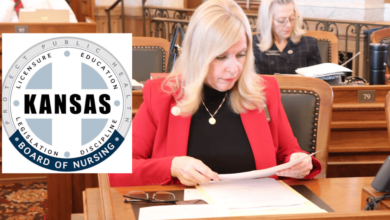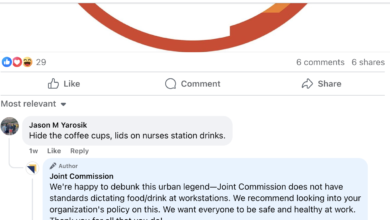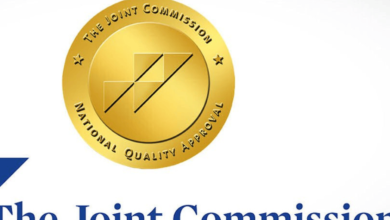Nurse-led project boosting safeguarding in social care

A nurse’s project to improve safeguarding in adult social care has been rolled out across the South of England – and she hopes it can be adopted nationally.
Naomi Ellis, director of safeguarding and clinical standards at NHS Sussex Integrated Care Board, created the Sussex Safeguarding Standards as a way to help social care providers in her patch meet their duties to keep patients and residents safe from neglect and abuse.
“We don’t want this to be an arduous thing, we want it to be useful for providers”
Naomi Ellis
Applicable to care homes and domiciliary home care providers, the standards include a self-assessment tool for users to check and ‘benchmark’ their compliance and also templates for action plans to improve.
The standards prompt providers to monitor safeguarding across a range of areas including governance, communication, and the quality of clinical care.
They also provide what Ms Ellis called a “lens” for workforce issues, encouraging and aiding providers to identify what knowledge, skills and safe staffing gaps are present in their settings, such as retention or recruitment challenges.
After a trial and local rollout, starting from March this year, found success in raising standards in Sussex, Ms Ellis’ standards are now being trialled in care settings across the South East of England, and could be seeing a national adoption in the near future.
Ms Ellis created the standards as part of a quality improvement project for a scholarship with the Florence Nightingale Foundation (FNF), and presented her findings at FNF’s recent scholars conference.
The project, she explained, came in part after experiences she had working as a social care nurse, and, later, running care homes herself.
“I started in A&E at an acute setting as a nurse, then went into care homes which is where the passion for this came from,” she said.
“I was a nurse, then a manager, then a regional and national manager of a care provider, and then went into primary care before taking on my safeguarding role.”
Ms Ellis explained that social care staff, by their nature of their jobs, sometimes worked in silos and therefore may miss out on up-to-date training, competencies and information.
“I started in A&E at an acute setting as a nurse, then went into care homes which is where the passion for this came from”
Naomi Ellis
She noticed that safeguarding was becoming a problem across the more than 1,000 social care services across her patch, and that there was an increase in the number of neglect concerns raised in the county.
A series of groups with care home and domiciliary home care staff, managers and owners found that the majority wanted any standards to not only reflect their statutory requirements, but best practice too.
“A need was identified to have a tool for standards and safeguarding, which would enable services to benchmark the safeguarding compliance of their services at a given time,” she said.
Ms Ellis continued that her standards aimed to complement the guidance that was already available from organisations like the Care Quality Commission, but that they went further by supporting providers to develop and improve care.
She said: “[The standards documents] are about giving a set of expectations, what is basic minimum practice, and how to build on that.
“The care homes can use the standards as a support tool – with the documentation for self-assessments, audits – it’s not about being a stick to beat the care homes with, it’s about supporting them, though the Care Quality Commission have used it as an assurance tool too.”
And, she said, the project was a success: “We saw [care staff] not only change in terms of their understanding of neglect and safeguarding, but also a better recognition in terms of why it might be happening and what to do about it.
“There’s a more refined understanding of what abuse is, and what local referral pathways there are in terms of where people can be directed.”
After the trial in her county, Ms Ellis was approached by NHS England to try it in Kent and Surrey, with further expansions scheduled soon for Buckinghamshire, Berkshire and Oxfordshire.
She acknowledged, however, that challenges remained in rolling it out: “A good home laps up these standards, they’ve filled it all in and work through it.
“But there are nursing homes which are harder to reach, those which might only employ small [numbers of] staff, family-run businesses, which might not have resources that a large company might.
“We don’t want this to be an arduous thing, we want it to be useful for providers.”







